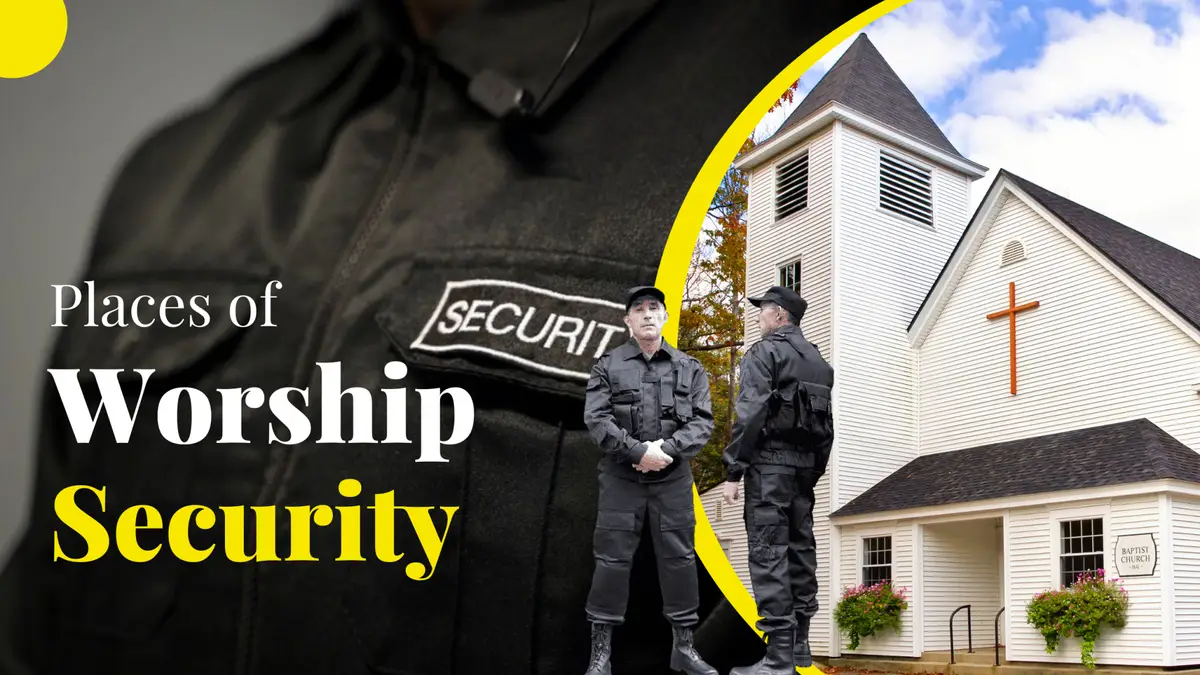Churches, as places of worship, are not immune to security threats. While they serve as sanctuaries for spiritual gatherings, they also face risks ranging from theft and vandalism to more serious incidents like violence. Implementing effective security measures is essential to ensure the safety of congregants, staff, and the premises itself. This article delves into various security strategies tailored for churches, emphasizing the importance of proactive measures to safeguard places of worship.
Understanding the Need for Security in Churches:
Churches are often perceived as safe havens, fostering community and trust among worshippers. However, this perception can make them vulnerable targets for criminal activity. Acts of theft, vandalism, and even violence can occur within church premises, posing threats to the safety and well-being of congregants and staff. Additionally, churches’ open and welcoming nature may attract individuals with malicious intent, necessitating robust security measures to mitigate risks.
Church Security Threats:
As sanctuaries for worship and community, churches face a spectrum of security threats demanding vigilant protection. From vandalism to theft and, increasingly, targeted violence, places of worship must implement comprehensive security measures. Threats extend beyond physical harm, encompassing cyberattacks on sensitive data and online platforms. The rise of extremism underscores the imperative for proactive risk assessment and collaboration with law enforcement. Empowering congregants with awareness and training fosters a culture of preparedness, reinforcing the resilience of these spiritual havens amidst evolving threats.
Church Security Plan:
A comprehensive church security plan demands meticulous attention to detail and proactive foresight. Beginning with a thorough risk assessment, it identifies vulnerabilities unique to the Church and its premises. Designating trained security guards versed in de-escalation techniques and emergency response forms the frontline defense. Implementing access control measures, including visitor screening and perimeter security, restricts unauthorized entry. Emergency protocols, such as evacuation procedures and communication strategies, are vital. Regular drills and scenario-based training cultivate readiness among staff and volunteers. Collaboration with local law enforcement agencies fosters coordination in crises. A dynamic, adaptive plan ensures the safety and resilience of the church community amidst evolving threats.
Enhancing Physical Security Measures:
Enhancing physical security measures is imperative in safeguarding against emerging threats. Implementing robust access controls such as biometric authentication or keycard systems fortifies premises against unauthorized entry. Physical barriers like bollards and reinforced doors bolster defense against vehicular attacks and forced entry. Regular security audits and updates ensure alignment with evolving risks and industry best practices. Collaborating with expert church security guards fosters tailored solutions addressing specific vulnerabilities. Ultimately, a layered approach integrating technology, personnel training, and architectural elements fortifies environments, promoting safety and peace of mind for occupants and assets alike.
Key Security Challenges in Churches – Places of Worship:
Several factors contribute to the unique security challenges churches or places of worship face in California.
- Churches typically have multiple entry points, including doors, windows, and sometimes even open outdoor spaces, making monitoring and controlling access difficult.
- Churches often host events and gatherings that attract large crowds, increasing the potential for security breaches.
- Churches may contain valuable assets such as religious artifacts, equipment, and donations, making them attractive targets for theft.
Effective Security Measures for Churches – Places of Worship:
- Risk Assessment
Conducting a thorough risk assessment is the foundation of any effective security plan for churches. Identify potential threats and vulnerabilities specific to the church’s location, size, and congregation demographics. Assess the building’s layout, surrounding areas, and historical security incidents to develop a tailored security strategy.
- Access Control
Implement access control measures to regulate entry into the church premises. This may include installing surveillance cameras, electronic key card systems, or manned entrance security checkpoints. Limiting access to authorized personnel and implementing visitor management protocols can prevent unauthorized individuals from entering restricted areas.
- Surveillance Systems
Install high-quality surveillance cameras strategically throughout the church property to monitor critical areas such as entrances, parking lots, and interior spaces. Combine surveillance cameras with motion sensors and alarms to detect suspicious activity in real time. Remote monitoring capabilities allow security personnel to respond promptly to potential threats.
- Security Personnel
Employ trained security personnel, such as security guards or off-duty law enforcement officers, to provide a visible presence and deter criminal activity. Security personnel can also assist with crowd management during significant events and respond quickly to security incidents.
- Emergency Preparedness
Develop and regularly review emergency response plans tailored to the church’s and its congregation’s needs. Conduct drills and training exercises to ensure that staff and volunteers are prepared to respond effectively to various emergencies, including medical emergencies, fires, and active shooter incidents.
- Community Engagement
Foster strong relationships with local law enforcement agencies, neighboring businesses, and community organizations to enhance overall security and share information about potential security threats. Encourage congregants to remain vigilant and report suspicious activity to church leadership or security personnel.
Final Thoughts:
Proactive measures such as risk assessment, access control, surveillance systems, and trained security personnel are essential to an effective security strategy for churches. Through collaboration with local authorities and ongoing community engagement, churches can further enhance their security posture and ensure the continued sanctity of their sacred spaces.
Protect your churches with Ranger Global Security’s expert church security services. Safeguard places of worship effectively with tailored security measures. Contact us today for security guard services.
